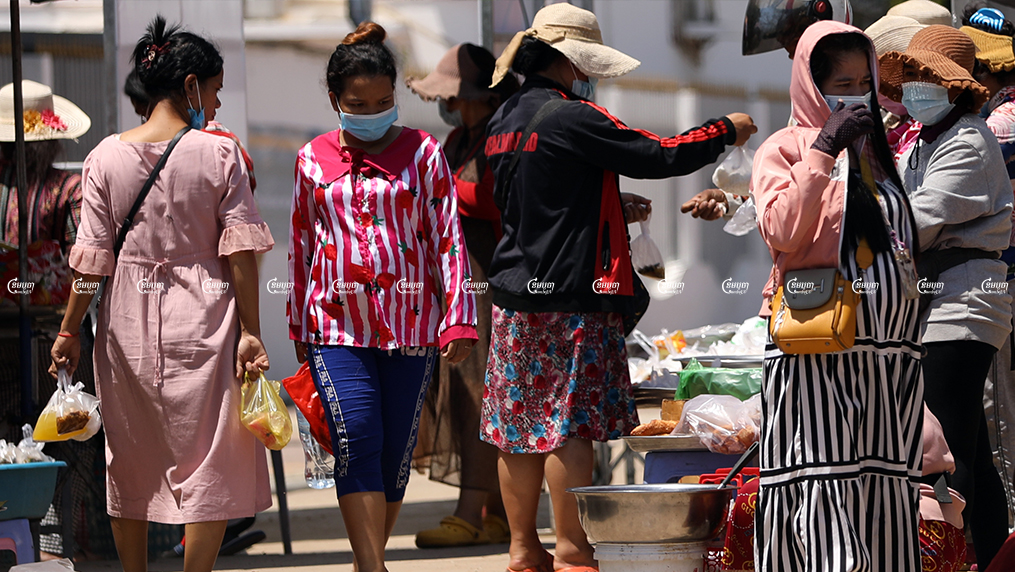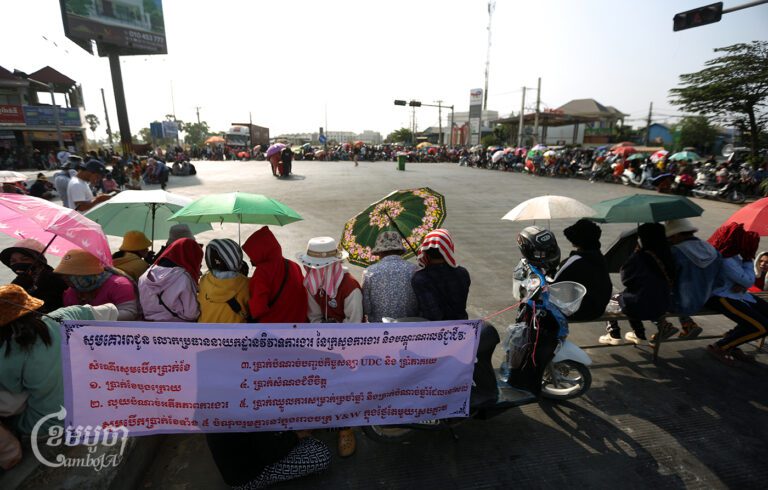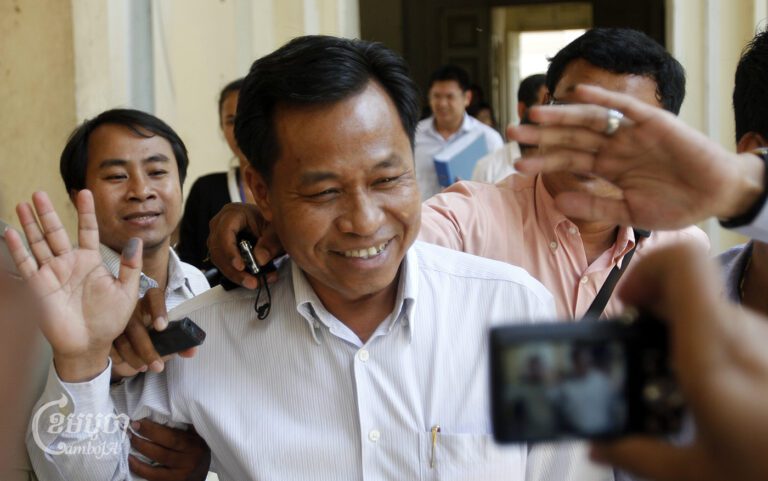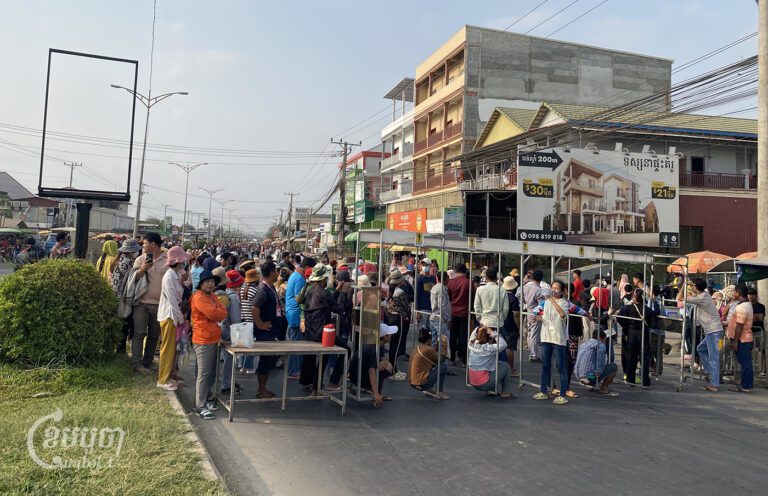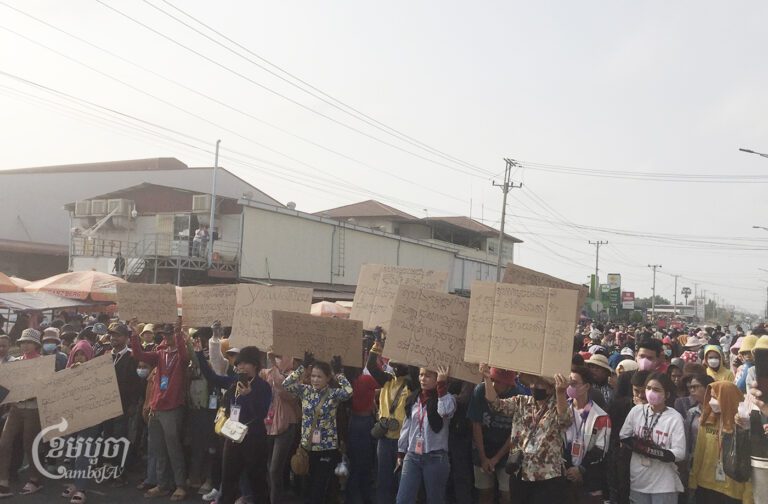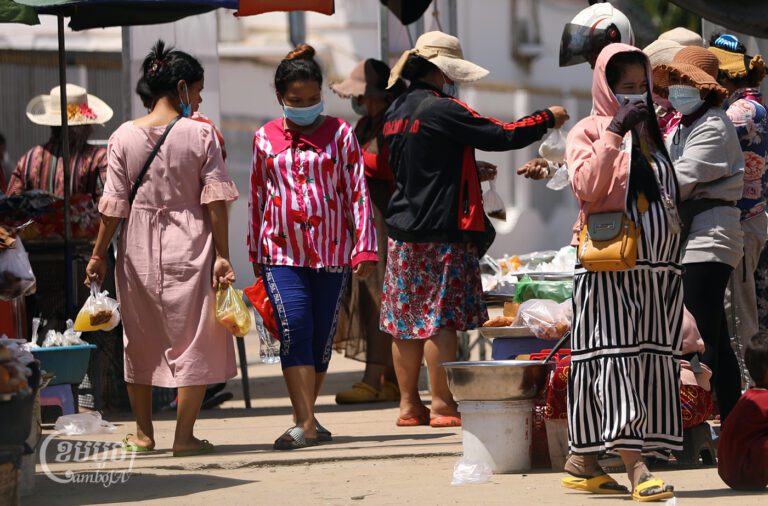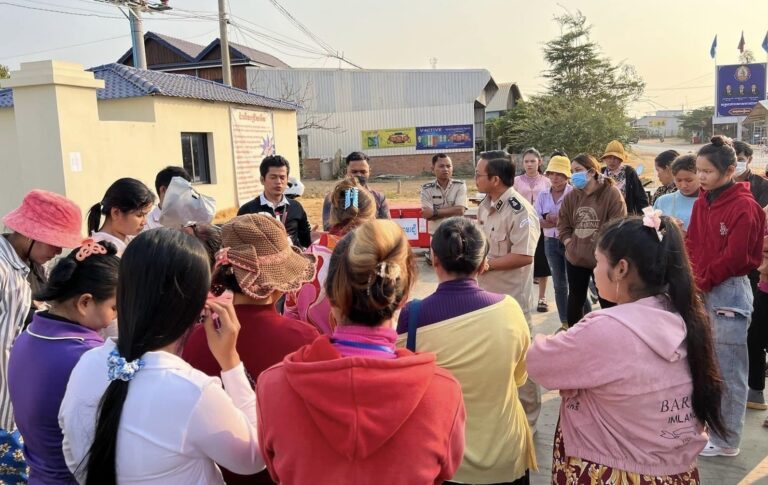Employers and government representatives have countered union requests to raise the minimum wage for garment workers, instead arguing for a wage decrease in the second of three September negotiation meetings to set the minimum for 2022.
Ken Loo, secretary general of the industry group Garment Manufacturing Association of Cambodia, said the employers’ side of negotiations made its own calculations to conclude worker’s salaries should be reduced by 4.5%. Loo pointed to the economic effects of COVID-19 and said garment industry employers can’t afford to spend more on labor.
“We’re still negotiating. Our production decreased 10% in 2020 compared to 2019 in exports, and next year employers have to pay for workers’ [National Social Security Fund] and retirement money,” he said. “The union still thinks our income is increasing, how can it be if our buyers decrease?”
Loo said employers are also spending more on production in order to prevent the spread of COVID-19 in factories, a requirement that includes expenses for masks, sanitizers and rapid tests for workers.
“Our expenses increase but our profitability decreases,” he said.
The current minimum wage for garment workers is $192. Ath Thorn, president of the Cambodian Labor Confederation — one of the country’s biggest unions attending the tripartite negotiations hosted by the Ministry of Labor — said employers had proposed a wage of $183.40. The government also advocated for a slight cut, with representatives using a technical calculation to present a wage of $191.90. Thorn said the union side is standing by its increased wage proposal of $214.20, which he said was calculated using a set of seven standardized points also used by the other parties in the negotiation meetings.
That wage represents a raise of $22.20 from the garment workers’ salary for 2020, which underwent a $2 increase from the year prior.
Pav Sina, head of the Collective Union of Movement of Workers (CUMW), said after the September 14 negotiation meeting that all parties had debated their calculations of a minimum wage using the seven analysis points. These include social and economic factors such as inflation, cost of living, industry competitiveness, productivity, labor market conditions and sector profitability.
“All parties have not changed their stands yet on the minimum wage negotiation for today’s meeting, so we hope the next meeting will have a positive result,” Sina said.
“What’s important in this situation, I think that even though our workers’ salaries may increase to any level, they still do not respond with the expense requirement yet,” Sina said.
Labor Ministry spokesman Heng Sour provided little comment, telling CamboJA that the unionist and employer sides of the negotiations have continued to defend their respective positions.
“I cannot speak on behalf of both parties,” Sour said.
Koeng Chanphally, 31, a worker with the Laurelton Diamonds garment factory in Cambodia, said that a decrease in the minimum wage would not bring in enough to support her family and meet daily expenses.
“My husband and I normally spend $5 per day and then there’s my three-year-old son, room rental, water and electricity, unexpected expenses that we have to cover,” she said. “Just currently weighing it up, it’s hard to support the family. Cutting even more, that will be difficult.”
She hoped the ongoing negotiation will bring fruitful solutions for workers, but she beseeched negotiators to avoid a salary cut if possible, adding that it’s been hard for workers like her to survive during pandemic conditions. Besides the daily expenses she listed, Chanphally is like many other workers in that she also has a substantial loan to pay off. She borrowed $5,000 from a bank to buy land and has been paying off her debt in monthly installments of $200.
“Just a single person cannot support himself, so what about people with a family?” she said.
Kim Sophy, 28, another garment worker in Phnom Penh, said her current salary is stretched between paying expenses for her children, housing and loan debt taken on to purchase land.
“It is not right to cut the salary, it can be death if they decrease the salary,” she said, listing her family’s expenses and explaining her husband is staying home to care for the couple’s three children.
“If they can increase the salary, it’ll be great for us to cover all expenses and save money to do other things,” Sophy added. “We don’t know yet if next year everything will increase in price, for things such as food.”
The next three-way negotiation meetings will be held September 21 and 28.


